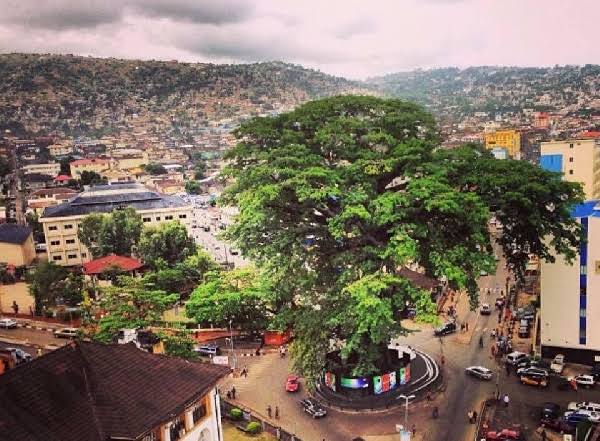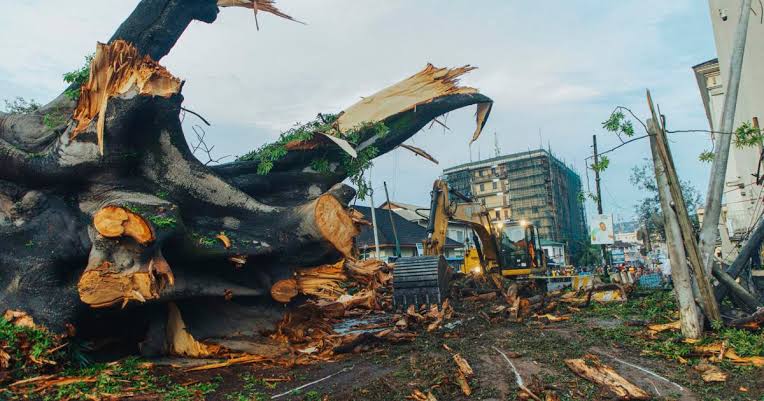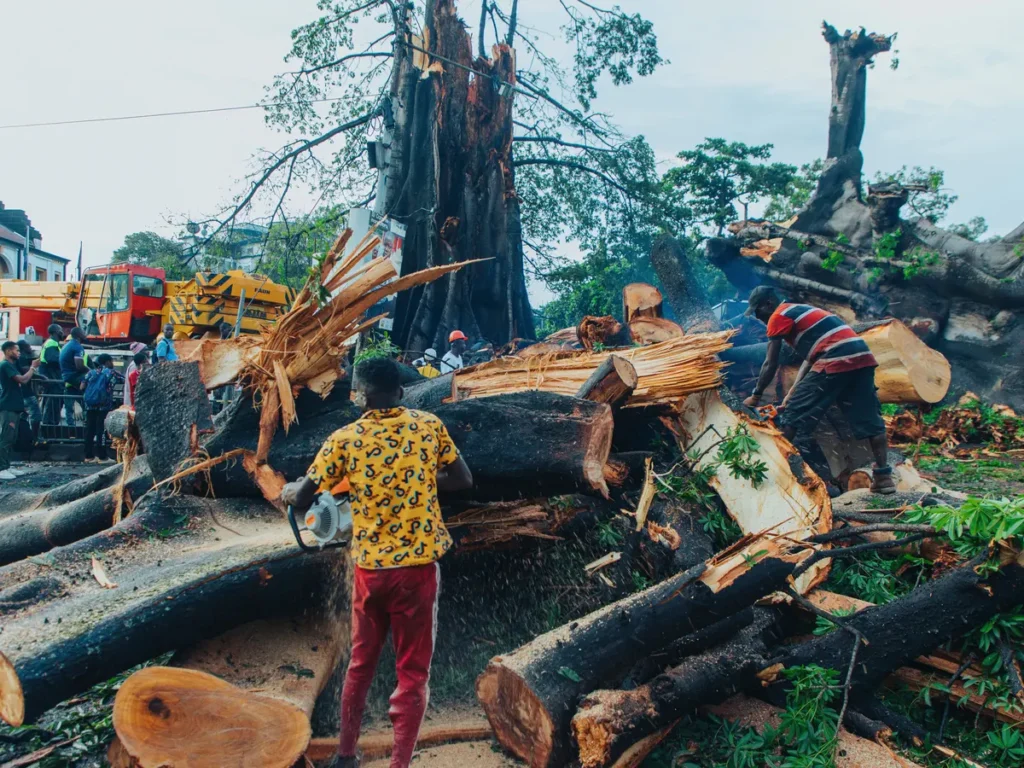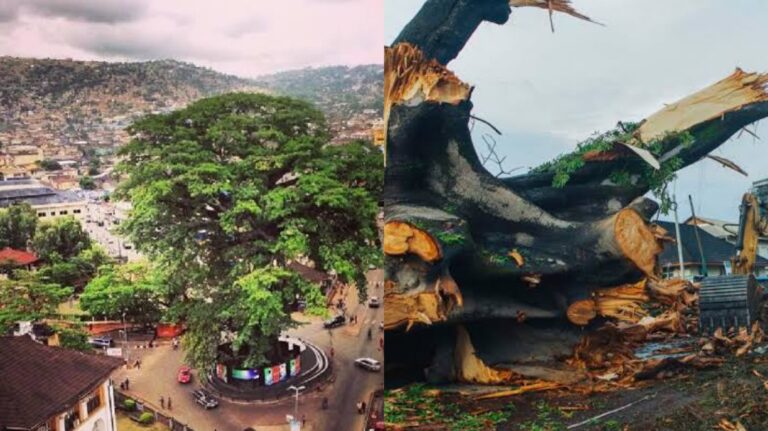Sierra Leone’s iconic “Cotton Tree,” a towering 70-meter (230-foot) Ceiba pentandra that has stood for around 400 years, has been toppled by a wind and rain storm in the capital city, Freetown. The tree, which had lost all of its branches, was a place of prayer for slaves who gained their freedom fighting on the British side of the American War of Independence and was visited by Queen Elizabeth II in 1961. It had remained a landmark ever since, adorning bank notes and stamps. The Cotton Tree was not just a tree, but a symbol of the nation’s history and a source of national pride for Sierra Leoneans.



President Julius Maada Bio expressed his grief at the loss of the tree, which has been a proud emblem of the nation and a symbol of its growth. “All Sierra Leoneans will pause for thought at the loss of such a prestigious national symbol as Cotton Tree,” he said. “For centuries it has been a proud emblem of our nation, a symbol of a nation that has grown to provide shelter for many.” The president’s statement reflects the significance of the Cotton Tree to the people of Sierra Leone.
The incident caused no injuries, but it has left Freetown residents devastated. A hundred residents gathered around the site in mourning on Thursday morning. “I’m shocked and heartbroken to see our beloved Freetown Cotton Tree destroyed this morning on my way to work,” said Gibrilla Sesay, a 34-year-old finance worker. The loss of the Cotton Tree has generated a sense of mourning and grief among the people of Sierra Leone, who feel that a part of their history and identity has been lost.
Sierra Leone has suffered from several climate-related disasters in recent years, including floods, mudslides, and landslides. The country is particularly vulnerable to the impacts of climate change due to its location along the West African coast and its reliance on agriculture, which is highly susceptible to weather fluctuations.
The fallen Cotton Tree is a reminder of the urgent need for climate action to protect vulnerable communities and ecosystems from the impacts of climate change. The government has deployed police and military personnel to the area around the fallen tree, and a cleanup effort is underway. The government has also called on the international community to support Sierra Leone in its efforts to adapt to and mitigate the impacts of climate change.
The loss of the Cotton Tree is not just the loss of a tree, but the loss of a symbol of Sierra Leone’s history and identity. The incident highlights the urgent need for climate action to protect vulnerable communities and ecosystems from the impacts of climate change. The people of Sierra Leone will continue to mourn the fallen Cotton Tree and remember its significance for generations to come.

